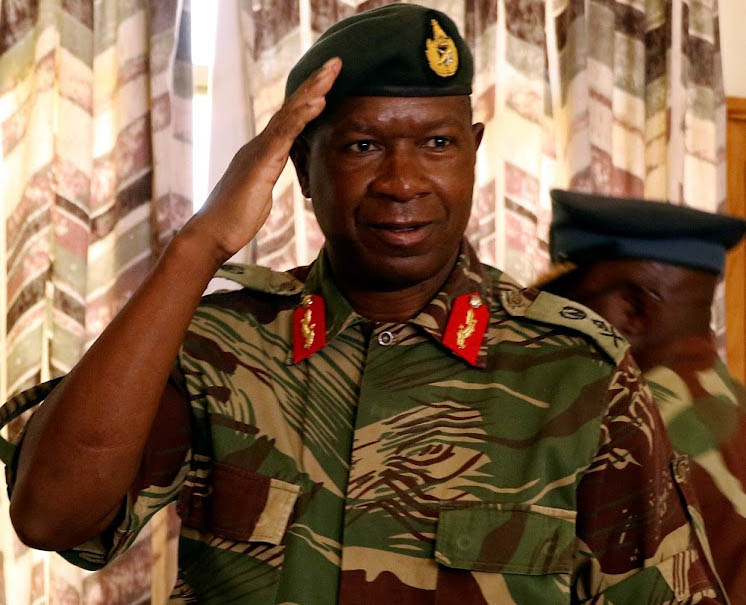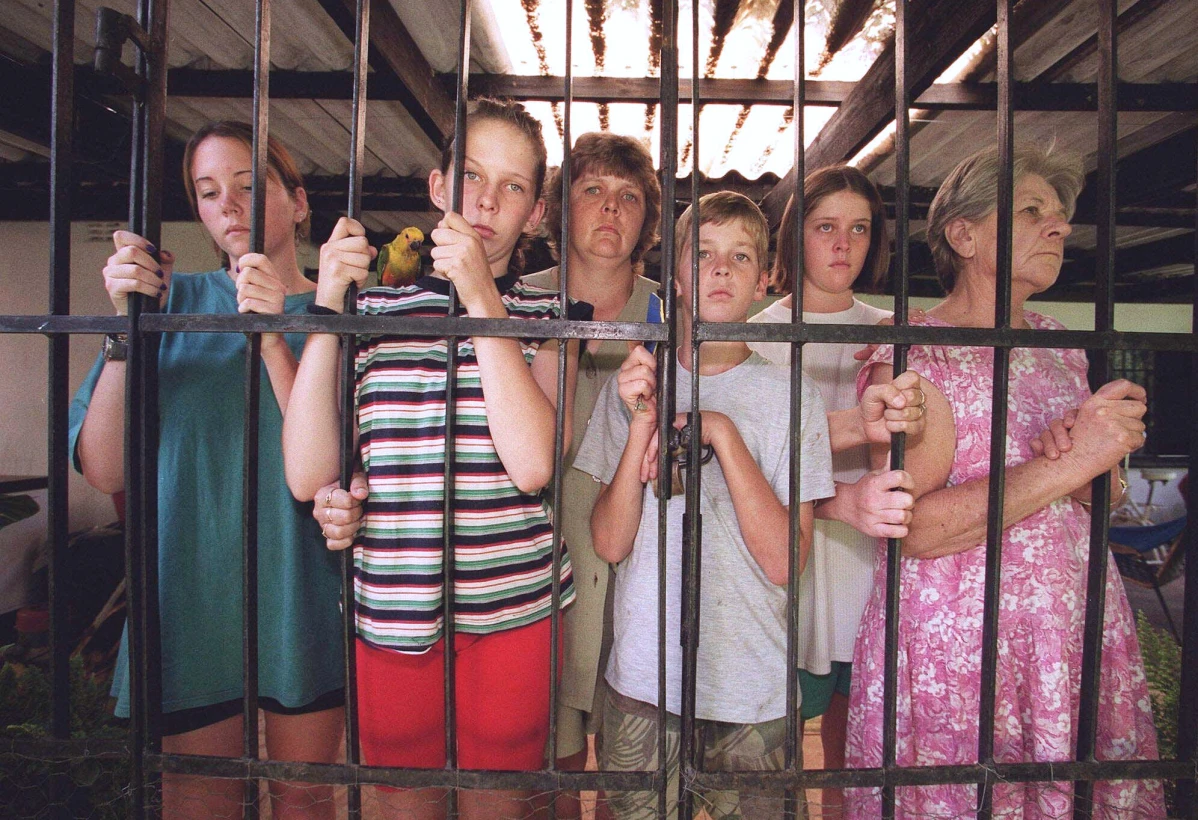HARARE – President Emmerson Mnangagwa announced on Saturday that he had “stayed” his controversial appointment of Zimbabwe Defence Forces Commander General Philip Valerio Sibanda to the Zanu PF politburo, just hours after lawyers gave him a 10-day ultimatum to reverse the appointment which they said breached the constitution.
Mnangagwa hopes the reversal of his initial decision, made at the annual Zanu PF conference in October, “resolves the apparent conflict with the country’s constitution which regulates the conduct of serving members of the security services,” his spokesman George Charamba said.
“The position will be reviewed at the expiry of general Sibanda’s term as a senior serving officer at the helm of the Zimbabwe Defence Forces,” Charamba said in a statement.
On Friday, top rights lawyer Kudzai Kadzere wrote to Mnangagwa demanding a reversal of Sibanda’s appointment as an ex-officio member of Zanu PF’s top decision-making body, which Mnangagwa had tried to defend amid widespread criticism.
Kadzere gave Mnangagwa a 10-day ultimatum, warning that he could be taken to court for breaching the constitution, particular the express prohibition of participation by members of the armed forces in partisan political activities.
The lawyer wrote: “Your Excellency, the term ‘ex-officio’ is Latin meaning literally ‘from the office or by right of office.’ According to the Merriam-Webster Dictionary, ex-officio means ‘as a result of one’s status or position’ or denoting or relating to a member of a body who holds the role as a result of their status or another position they hold.
“In a board setup an ex-officio member of the board has all the same rights, privileges, duties, an obligations as any other board member, although in the some cases the ex-officio member cannot vote. ”
Kadzere said ex-officio members are expected to act in the best interest of the organisation or group they represent and may be required to provide regular reports to the organisation.
“It is therefore evident that your appointment of General Sibanda as an ex-officio member of the Zanu PF politburo puts a serving Commander of the Defence Forces in an invidious position of acting or being seen as acting in a partisan manner, furthering the interests of the Zanu PF political party prejudicing the interest of opposition political parties and being seen or perceived as an active member or office bearer of the Zanu Pf political party especially given that he was appointed into the highest decision making body of Zanu PF,” Kadzere’s lawyers said in the letter.
“We are instructed to demand that you reverse the appointment within the next ten (10) days failing of which our client will have no choice but approach the court of law for redress.”
Under intense criticism, Mnangagwa’s used a controlled interview with state TV ZBC to defend the appointment, claiming that the constitution only prohibited civil servants from participating in political activities.
“Well, people are mistaken that General Sibanda is a civil servant. He is not a civil servant. Second point, he is an ex-officio member, which means he cannot vote in the politburo. And I as the president can appoint anyone. I don’t know who gets offended by his appointment. He cannot vote but he can contribute,” Mnangagwa said.
But Kadzere insisted that the law was violated.
He said security services or any of their members are not allowed to act in a partisan manner, further the interests of any political party or cause; prejudice the lawful interests of any political party or cause; or violate the fundamental rights or freedoms of any person.
“It further violates section 208(3) and (4) of the Constitution of Zimbabwe which provides respectively that members of the security services must not be active members or office-bearers of any political party or organisation. Serving members of the security services must not be employed or engaged in civilian institutions except in periods of public emergency,” read the letter.
As for Sibanda, the lawyer warned, attending a Zanu PF politburo meeting could be a criminal offence under section 36 and 39 of the Defence Forces Act which deals with “scandal conduct of officers.”
Mnangagwa’s latest embarrassing climbdown follows his appointment last week of a tribunal to look into Justice Webster Chinamora’s fitness to stay in office after the Judicial Service Commission wrote to him in March this year advising him to set up the investigation.
Mnangagwa only took action after prominent lawyer Beatrice Mtetwa wrote him and the JSC an open letter, accusing him of breaching his oath of office by refusing to act on the judge.
















